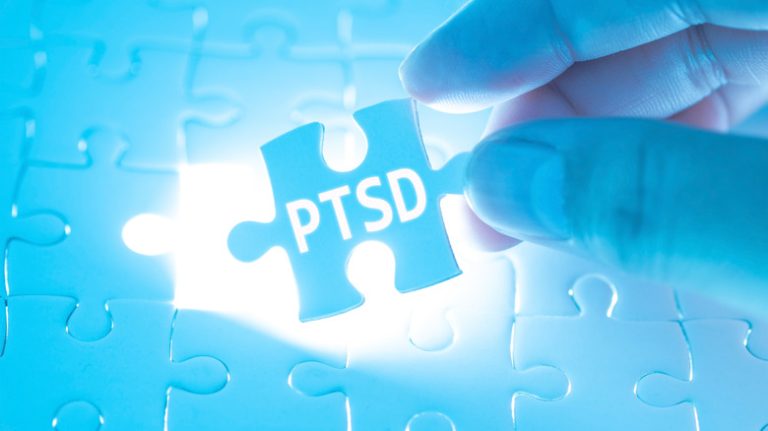It’s not hard to find explanations for why so many of us experience anxiety in our modern world. From global events to work pressures, it’s no wonder that nearly one-in-five American adults have an anxiety disorder, according to the National Alliance on Mental Illness (NAMI). Now, scientists think that hormones can play a role, too.
Anxiety disorders are characterized by an excessive amount of relentless fear or worry in situations that don’t warrant a response of that level (via NAMI). You might feel apprehensive, jumpy, sweaty, or fatigued, and your heart might pound or race. While some anxiety is a normal part of life, intense distress that prevents us from participating in everyday life could be due to an anxiety disorder, like generalized anxiety disorder or social anxiety disorder.
Hormones are also a normal part of life, and our health is usually at its best when they’re balanced (via Cleveland Clinic). The human body has over 50 different types of hormones, which act as messengers to tell our bodies what to do and when. The top three categories of hormones that can affect our anxiety are stress hormones, sex hormones, and thyroid hormones (via Verywell Mind).
How anxiety and hormones are linked

Often, those with hormone imbalances also experience anxiety, according to Everlywell. While it’s sort of a chicken-or-the-egg situation and scientists aren’t totally clear on which causes which, there’s at least a distinct link. Sex hormones — especially estrogen and testosterone — fluctuate throughout life and can affect moods, like during puberty, menstruation, pregnancy, and menopause. Women are also more likely to develop anxiety disorders than men, which some experts think could be due to lower levels of testosterone in women.
Cortisol and adrenaline, the stress hormones, normally surge when we’re in immediate danger. If they’re triggered during an event when we’re not actually in danger, however, they won’t be used by the body. This leads to excess levels that can make us feel stressed. They can even make our bodies release more stress hormones in response, creating a cycle of anxiety.
Thyroid hormones are also linked to anxiety, as common symptoms of an overactive thyroid (hyperthyroidism) include feelings of anxiety, restlessness, irritability, and nervousness. Similarly, an underactive thyroid (hypothyroidism) can cause fatigue and feelings of depression.
Boosting oxytocin, the “love hormone,” can help relieve anxiety (via Verywell Mind). You can get more oxytocin in your life by snuggling with a loved one, petting a dog or cat, or meditating.







